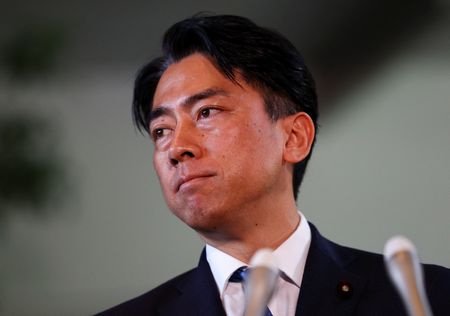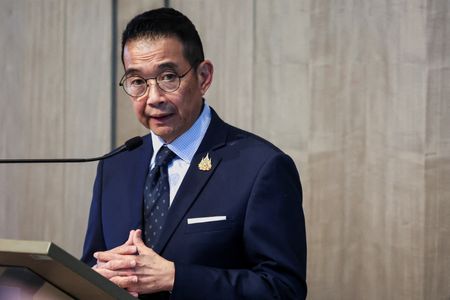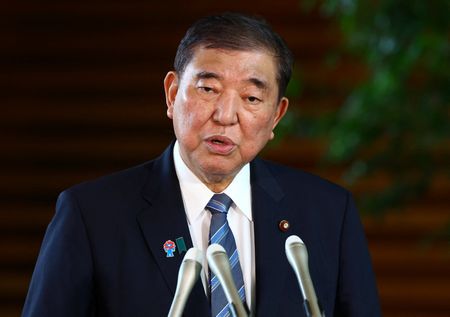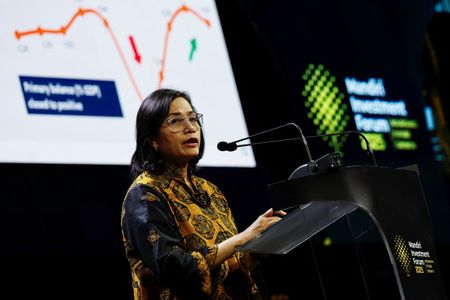By Chang-Ran Kim
TOKYO (Reuters) -Japan’s new agriculture minister pledged on Friday to quickly move rice from government stockpiles to store shelves where they would be offered at prices significantly lower than current levels, seeking to stem a consumer shift to cheaper, foreign brands.
Soaring rice prices, due in part to crop damage from extreme heat and additional demand from a boom in tourism, have become a major concern for Japanese consumers as well as the government with upper house elections set for July.
The government has been releasing some of its stockpiled rice since March but that has yet to translate to lower supermarket prices.
“The abnormal surge in prices that we’re seeing now could accelerate the shift away from domestically produced rice in Japan,” Shinjiro Koizumi told a press conference.
“We’re already seeing supermarkets buying directly from the United States despite having to pay tariffs… We have to quash this abnormal situation and speed is of the essence.”
Japan has historically been reluctant to encourage imports of rice, seeking self-sufficiency for its most basic food and putting up high tariffs to protect local farmers from competition.
Koizumi, the son of former prime minister Junichiro Koizumi, took up his post just two days ago. His predecessor, Taku Eto, was forced to resign after angering voters by saying he had never had to buy rice thanks to gifts from supporters.
Koizumi said he aimed for stockpiled rice to reach store shelves for under 3,000 yen ($21) per 5 kg by early June. That compares with an average price of 4,268 yen in the seven days to May 11, double the same period a year earlier.
Nationwide consumer price index (CPI) data on Friday showed soaring rice prices accelerating overall food inflation to 7.0% in April, from 6.2% in March.
Koizumi also met with Rakuten Group CEO Hiroshi Mikitani, who said the online retail giant was prepared to support the government’s efforts.
Upon taking office, Koizumi immediately terminated the auction method of releasing emergency-use rice and said the government would instead sell via discretionary contracts.
The government first released rice from its emergency stock in March through two auctions for 210,000 metric tons, but as of late April, only about 7% had reached retailers due to a complex and time-consuming processing and distribution scheme.
Koizumi said the ministry plans to outline a basic framework for how the new process would work next week.
Questions remain over how the government would select whom to sell to and at what price. It is planning to release 100,000 tons every month through July.
($1 = 143.8000 yen)
(Reporting by Chang-Ran Kim; Additional reporting by Yuka Obayashi; Editing by Christian Schmollinger and Edwina Gibbs)










